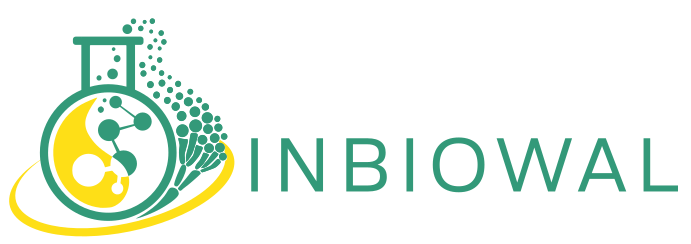Visionary Goals for Transforming Industries and Shaping the Future
A Vision for Innovation
The INBIOWAL project is a groundbreaking initiative that seeks to redefine waste valorization through international collaboration, innovative research, and direct industrial application. Its core mission is to establish a sustainable bioeconomy by converting industrial by-products into valuable resources, fostering economic growth, and reducing environmental impact. Central to this vision is the creation of the Biorefinery for the Future (BIOREF4FUTURE), a Center of Excellence that positions Central and Eastern Europe as a hub for cutting-edge biotechnological solutions.
BIOREF4FUTURE: Shaping the Future of Waste Valorization
At the heart of INBIOWAL’s vision is the establishment of BIOREF4FUTURE, a forward-looking research and development center dedicated to the valorization of waste streams from the oil and agri-food industries. This center represents a bold step toward integrating advanced biotechnology with real-world applications, addressing both global sustainability goals and the economic needs of industries.
Key features and objectives of BIOREF4FUTURE include:
- Interdisciplinary Innovation: Combining green chemistry, molecular biology, and enzymatic processes to develop high-value products like bioactive compounds, bioplastics, and biofuels.
- Regional Leadership: Establishing Central and Eastern Europe as a leader in sustainable bioeconomy practices by developing scalable technologies tailored to regional industries.
- Industrial Applicability: Creating solutions that are economically viable, environmentally sustainable, and directly relevant to industry needs. Pilot-scale testing and lifecycle assessments will ensure that technologies are market-ready.
- Educational Hub: Serving as a training ground for the next generation of scientists and engineers, providing them with the skills and knowledge needed to advance green technology.
BIOREF4FUTURE will act as a bridge between academic research and industrial application, ensuring that innovations are not only scientifically sound but also economically and environmentally viable. By fostering collaborations across academia, industry, and government, the center will play a pivotal role in transforming waste streams into valuable resources.
Expanding Industry Collaboration
The unique strength of the INBIOWAL project lies in its deep integration with industrial stakeholders. By directly involving companies in research activities, the project ensures that innovations are tailored to address real-world challenges and industry priorities. The collaboration spans multiple levels:
- Technology Transfer: INBIOWAL actively works to transfer academic research into industrial practices. Partners from the oil refining, food processing, and bioenergy sectors are engaged to test and adopt innovative biotechnological processes. This two-way exchange of knowledge helps refine methodologies and ensures scalability.
- Pilot-Scale Implementation: Industrial partners play a crucial role in scaling up laboratory experiments to pilot-scale production. This step bridges the gap between research and commercialization, validating the economic and environmental performance of proposed technologies. Examples include the enzymatic transformation of lipids into high-value compounds and the production of microbial biomass for biofertilizers.
- Lifecycle and Sustainability Metrics: Industry stakeholders collaborate on lifecycle assessments to evaluate the environmental footprint of developed technologies. These assessments ensure that innovations align with sustainability metrics and regulatory requirements, increasing their adoption potential.
- Industry Forums and Networking: INBIOWAL facilitates Academia-to-Business (A2B) meetings, where researchers present technological advancements to potential industrial partners. These forums encourage dialogue, foster partnerships, and identify pathways for commercialization.
Goals of INBIOWAL
The INBIOWAL project’s goals are rooted in leveraging international expertise and cutting-edge technology to address the complex challenges of waste management and valorization. The primary objectives include:
- Creating a Global Research Network: INBIOWAL connects six leading institutions from five countries—Poland, Sweden, Italy, Croatia, and Australia. This network promotes knowledge exchange and collaborative research, driving innovation across borders. Regular workshops, internships, and academic exchanges ensure a dynamic flow of ideas and expertise.
- Developing Green Technologies: The project focuses on sustainable technologies such as:
- NADES-assisted extraction of bioactive compounds.
- Biocatalytic transformations of lipids and phenolics.
- Microbial biomass production for food and renewable energy and bioplastics.
These innovations offer industries eco-friendly alternatives to traditional chemical processes, reducing their environmental impact while enhancing efficiency.
- Strengthening Research and Training: INBIOWAL’s training programs equip researchers with advanced skills in biotechnology and green chemistry. From grant writing workshops to molecular engineering internships, the project provides a robust foundation for career development.
- Establishing BIOREF4FUTURE: The vision of BIOREF4FUTURE extends beyond the duration of INBIOWAL, laying the groundwork for a lasting legacy of sustainable innovation. The center will serve as a hub for research, industry collaboration, and policy development, driving long-term impact on both regional and global scales.
- Enhancing Industrial Sustainability: By integrating lifecycle analysis and resource efficiency into technology development, INBIOWAL ensures that its innovations are not only effective but also align with the broader goals of reducing industrial waste and conserving natural resources.
The Role of Collaboration
Collaboration is the cornerstone of INBIOWAL’s success. Each partner institution brings unique expertise, ensuring a multidisciplinary approach to waste valorization:
- University of Zagreb (UniZg): Specialists in green solvents and NADES-assisted extraction.
- Politecnico di Milano (POLIMI): Leaders in enzymatic synthesis for bioactive compound production.
- Swedish Centre for Resource Recovery (SCRR): Innovators in microbial biomass and bioenergy production.
- Consiglio Nazionale delle Ricerche (SCITEC-CNR): Experts in lipid transformations using biocatalytic processes.
- University of Queensland (UQ): Experts in ASR, pioneers in molecular engineering and enzyme optimization.
Through shared expertise and coordinated efforts, INBIOWAL not only advances scientific understanding but also accelerates the development of market-ready solutions.
A Future of Impact
INBIOWAL’s vision is both ambitious and practical, ensuring that the project delivers tangible benefits to industry, academia, and society. By bridging the gap between research and application, the project sets a new standard for collaboration, sustainability, and innovation.
